Dr. Damon Arnold was the Director of the Illinois Department of Public Health for four years from 2007 to 2011. He ran an agency comprised of over 1,200 employees and 130 programmatic areas, with an annual budget of over $700 million. Arnold received over 70 awards and recognitions for his achievements in this capacity.
He also served for 26 years in the Army National Guard as the Commander of the Illinois State Joint Task Force Medical Command and as a qualified Blackhawk Helicopter Flight Surgeon. Col. Arnold served two tours of combat duty in Iraq. Among his many military medals and recognitions, he was awarded the highly coveted Legion of Merit medal by President Barack Obama, as well as three Army commendation medals and two National Defense Service medals.
Colonel Arnold is an M.D. and an M.P.H from the University of Illinois, as well as an M.A. Homeland and Defense Security Studies from the Naval Postgraduate School. He has worked for over four years at Health Care Services Corporation. His duties include work in the Special Investigations Division of Blue Cross Blue Shield of IL, TX, OK, NM and MT, as well as, the IL Medicaid and Medicare government programs. He currently serves as the Vice President for AAPHP.
N’DIGO recently sat down with Dr. Arnold, an Adjunct Professor in the University of Illinois College of Medicine and in the School of Public Health, to discuss what coronavirus is, how it’s transmitted, how to avoid the virus, and other precautionary measures one should take to stay healthy.
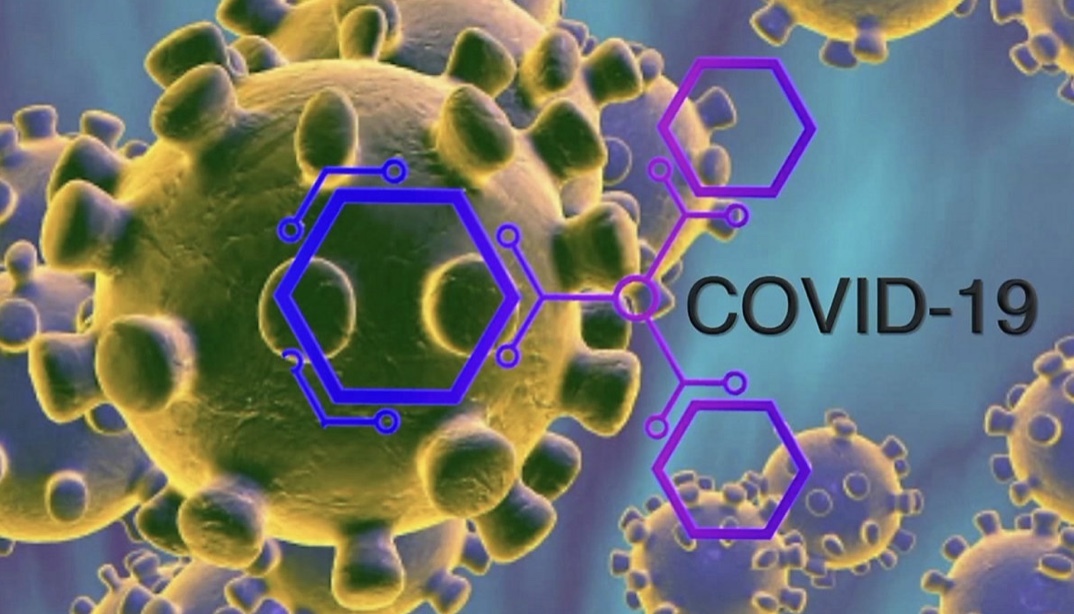
N’DIGO: What is coronavirus in the first place?
Dr. Damon Arnold: Coronaviruses are well known to the medical community and cause about 25 percent of common colds each year. The word ‘corona’ means “crown” – the image of the virus through an electron microscope appears as if it were wearing a crown.
In the case of the current pandemic, the Severe Acute Respiratory Syndrome – Corona Virus 2 (SARS-CoV2), that causes the Corona Virus Disease discovered in 2019 (CoVID-19), arose as a new (novel) strain in Wuhan City, Hubei Province, China.
The virus arose in bats that serve as the reservoir for the virus, and it can then be transmitted to other animals. The subsequent spread of the virus to humans is known as “zoonotic transmission,” which means moving from animals to humans.
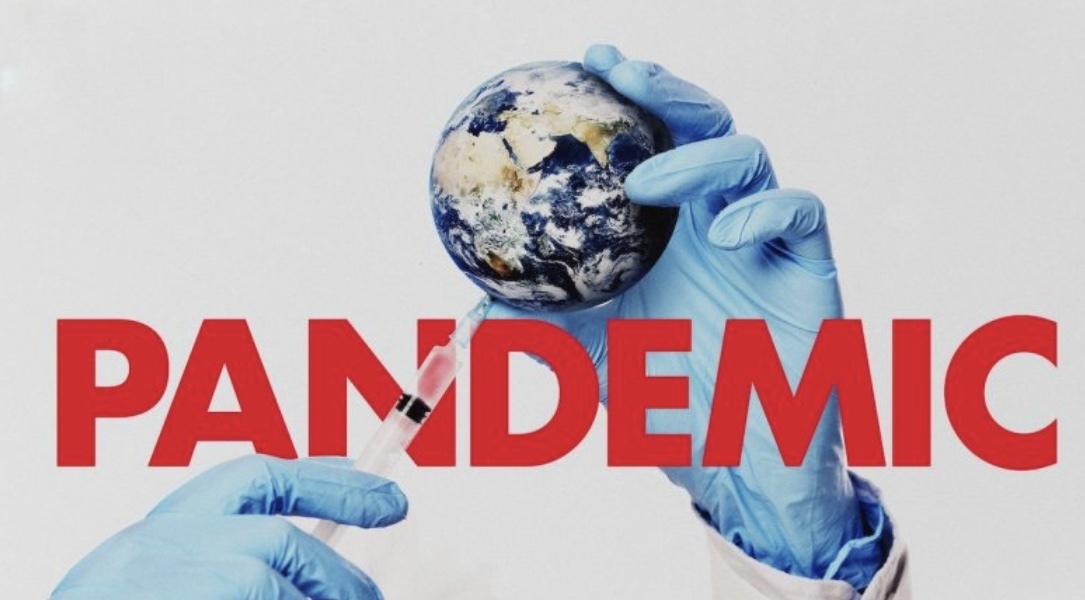
Why is it a pandemic?
The Centers for Disease Control and Prevention (CDC) defines a pandemic as “an epidemic that has spread over several countries or continents, usually affecting a large number of people.” Currently, the corona virus global pandemic involves six of the seven continents of the world.
Who is most susceptible to the virus?
The virus is new to the population and as such people have not developed prior immunity to it. A majority of those in the affected population will be susceptible to infection with the virus.
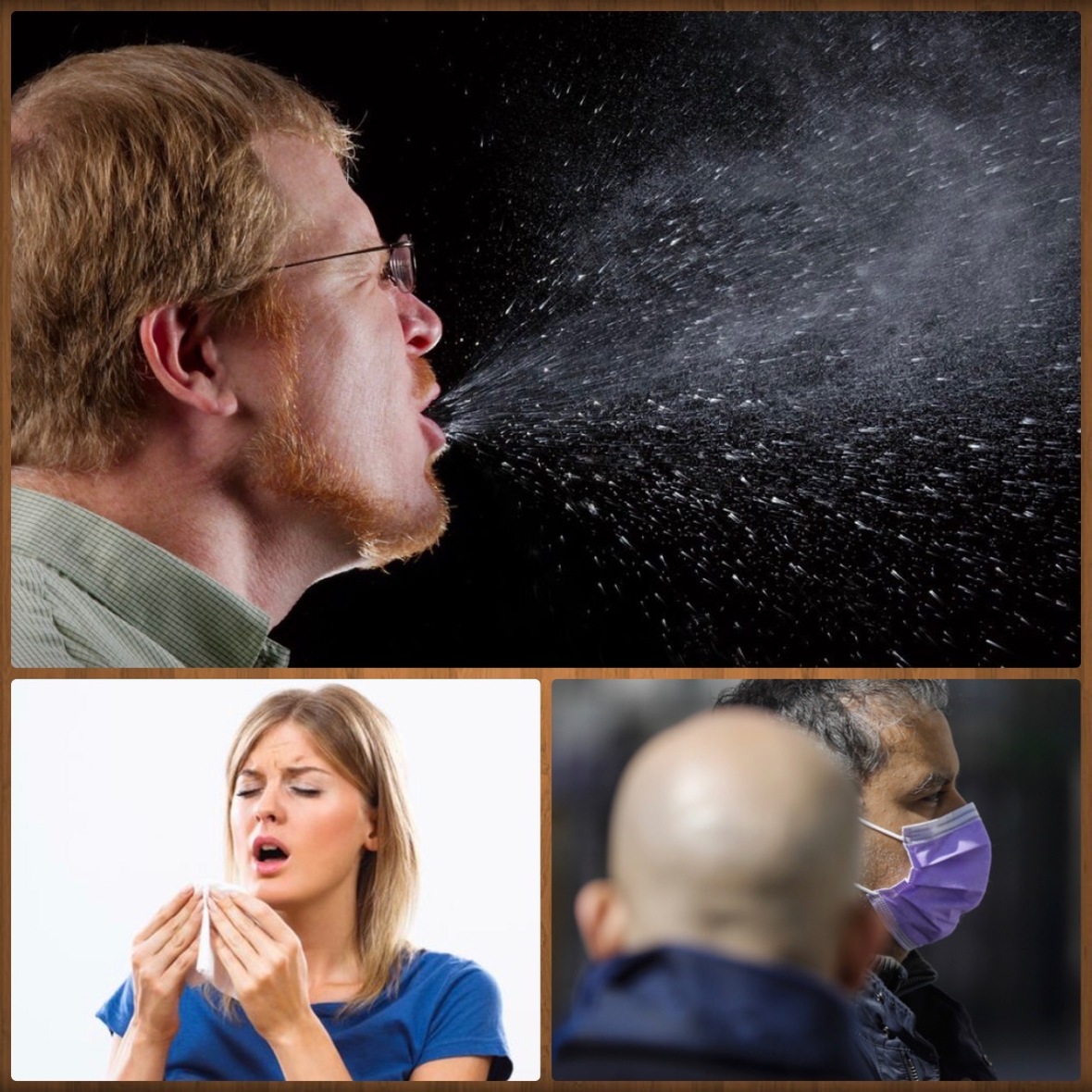
How is it transmitted?
Avoid direct contact with people who are sick as you can inhale the virus in the droplets produced by someone who is coughing or sneezing within six feet of you. If you become ill, wear a mask so as not to infect others. Use a tissue to cover your cough or sneeze and dispose of it in an appropriate trash receptacle or container.
What measures can you take to safeguard yourself?
First, it is important to understand that there currently is no targeted treatment for the virus and no vaccine available to provide immunity against the virus. Testing for the virus is becoming more readily available.
Currently, the approach to taking care of those who become ill with symptoms is supportive in nature. That is, helping to address their symptoms. What you can do is to avoid direct contact with high-touch surfaces, such as doorknobs, countertops and touch screens. These surfaces should be cleaned frequently with a disinfectant such as a diluted bleach solution, or more appropriate commercially available product for touch screens.

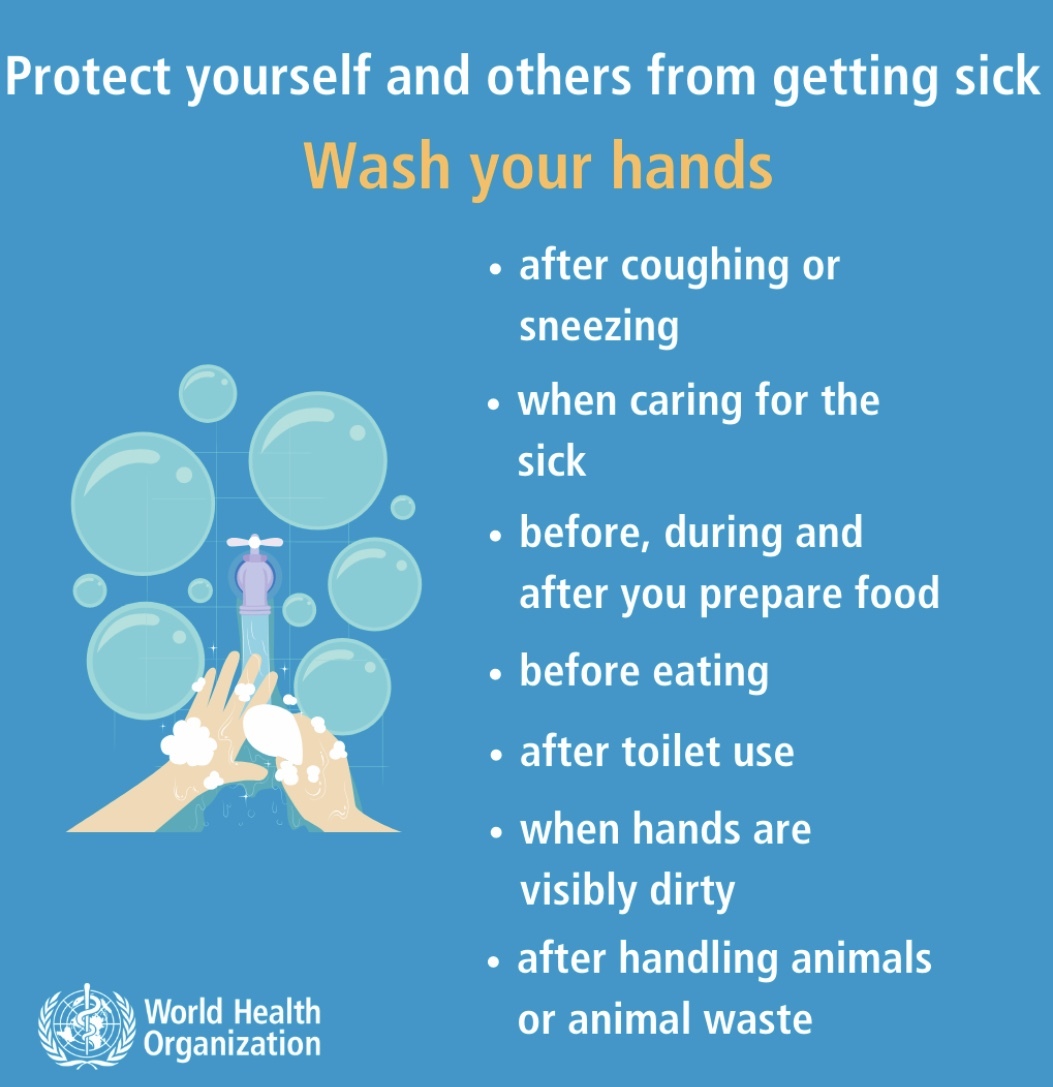
Why is washing your hands so important and how often should you wash your hands daily at this time?
Avoid touching your face as the virus can enter your body through rubbing your eyes or touching your nostrils and mouth with your hands. Wash your face in the morning, when you first get home, and before going to sleep, as you may have touched potentially contaminated surfaces and then touched your face without realizing it.
Wash your hands several times a day, especially after performing several tasks with your hands. Use soap and water for at least 20 seconds, cleaning under your nails and the thumbs, which are often missed. You can sing a song or recite poetry or a prayer to pass the time while you are washing your hands. Antiseptic gels (65-to-95 percent alcohol) are only a temporary solution when soap and water, which is more effective, is not available to cleanse your hands.

Why is it necessary to close bars, schools, restaurants, churches and the like?
Once the virus is distributed through a population of people who are not immune, the virus can rapidly spread through person-to-person transmission. By closing the bars, schools, restaurants and churches, Governor Pritzker, with guidance from the Illinois Department of Public Health, has shown strong leadership in protecting the people of Illinois by slowing down the spread of the virus.
This form of “social distancing” makes it hard for the virus to spread by way of human-to-human contact. This also helps to minimize the risk of a surge on the health care system (too many people becoming sick at one point in time and seeking medical care). Also, remember that social distancing does not mean social disconnection or social abandonment. We need to keep in contact with each other and appropriately care for those in need.
What should you do if you suspect that you have coronavirus?
Stay home when sick, except to seek necessary medical care. At least 80 percent of the people who get the virus have little or no symptoms, based on what is seen so far. Others who become ill can develop a high-grade fever, cough, and shortness of breath.
The major way the virus spreads is though those who cough and produce droplets that enter the air. That is why you should cover your cough. If you are feeling very ill and have shortness of breath, you should seek medical care. It is important to call ahead of visiting the doctor’s office so that they can prepare to receive you.
This protects their staff and the patients sitting in the office who may have chronic medical conditions when you arrive. They may have a worse outcome than you, should you spread the infection to them. Telemedicine may also be an available option.
Who is the virus affecting most?
The virus appears to have the worst medical outcomes in those with chronic diseases such as diabetes, heart failure, and chronic obstructive pulmonary disease (e.g., from smoking cigarettes), as well as those who have poor immune function and those with cancer. There is also special concern for those who are over the age of 40, and especially those greater than 60 years old.
If you are sick, do not visit friends or family members, especially if they are elderly or have a chronic medical disease, as noted above. It is also a wonderful act of charity to help your elderly family members with grocery shopping as well as older friends and neighbors. This decreases their risk of potentially being exposed to the virus and avoids a more serious outcome if they were to become ill with the virus.
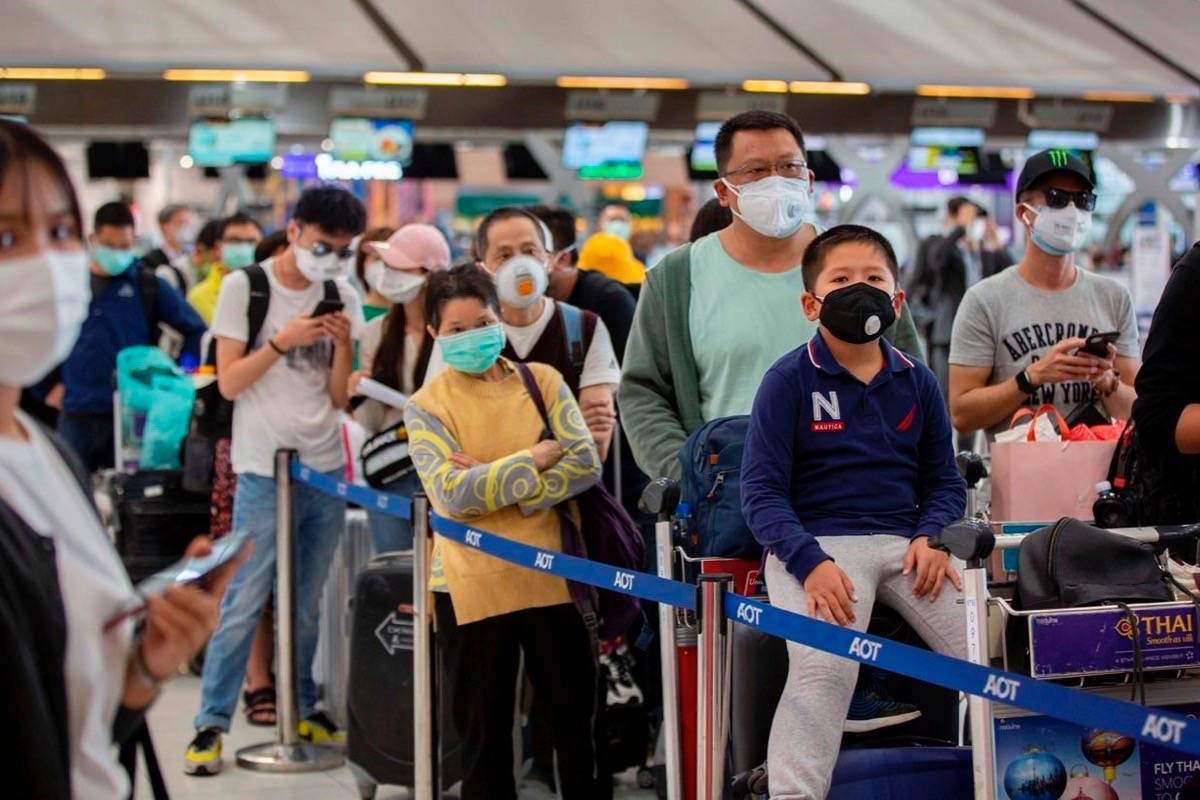
Should people travel right now?
The current recommendation is that you should cancel all non-essential travel at this time. The virus is presently in the United States, but overseas the virus is already rapidly spreading and poses an increased risk for those traveling.
How long do you think this will last?
The length of time that this pandemic will last depends upon many things. Hopefully it will not last more than a few months. There is also a concerted effort by the National Institutes of Health and private industry to develop an effective vaccine against the virus. The important thing is to follow the guidance provided by the experts at the CDC and our local state governmental agencies.





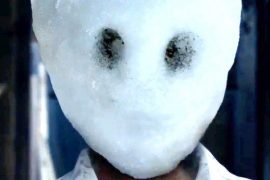

Hey everyone. My team members and I are delighted we came across the advice here. I’ve been scoping the news for this info since last fall and I will be sure to tell my friends to drop by. The other day I was traversing through the google searches trying to find a solution to my unending questions. Now I will be diligent to take more action in whatever mode possible. We are getting all blissed out on the different patterns we are seeing. Again I just wished to thank you while I had the chance for such great answers. This has lifted me out of a rut. Many new things are sprouting in my life. Its such a likable community to make conscious engagements. It is known that I am looking into the topic of [url=https://www.sedona-psychic.com/services-psychic-reading-vortex-sedona.html]vortex hike sedona[/url]. Reach out to me if you are interested also. Thanks for taking time to read my message. You can reach out me your thoughts and I will respond back as soon as I am able. Good day and I’ll share with you shortly.
Stay focused
Keep oon working, great job!
Thank you